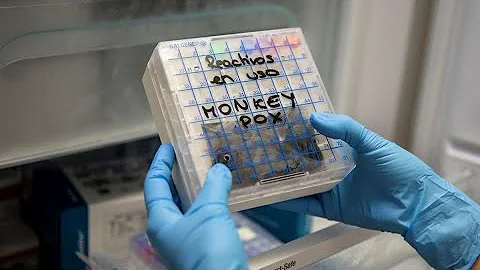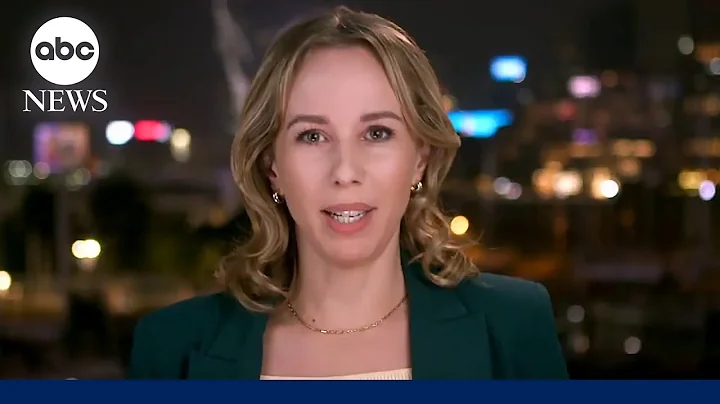Thank you for following the official WeChat account of China Education News! If you haven't followed it yet, please click "China Education News" below the title to follow us.
In the final stage of the college entrance examination sprint, these worries: Which part can we improve in the final time? How to make full use of your notes? What is the focus of the sprint phase? ...Don't worry, it's nothing!
Today, the editor invites two academic masters to share with you their exclusive tips for the college entrance examination. The first one is the second place student in the college entrance examination in Hebei Province who is currently studying at Guanghua School of Management of Peking University, and the top science student in Shijiazhuang City, whose test score is 713 points, --- the exclusive secret of classmate Zhao Yundi.
Science master
1. Review by subject in the sprint stage of the college entrance examination, just do this
1. Review notes and give up on the sea of questions
Considering that there is not much time left, children must not fall into the tactic of sea of questions. Don't even think about finishing all the questions. Now you should focus on reviewing and consolidating knowledge points. Because the children have been there before, they must have taken a lot of notes. Therefore, during this period, you must make appropriate review arrangements. For example, which part of each subject should I read? Should I read them all or focus on the key points drawn before? You must have your own plan for this.
2. Review the mainstream and give up on side questions
. The remaining time is almost up. We need to familiarize ourselves with all the knowledge points and say them again, and maintain the feel of doing the questions. Don't get hung up on the difficult or side questions we know, don't practice like this anymore, you should go back to more mainstream questions. At this time, if you are struggling with a certain question, you still lose more than you gain.
3. From thick to thin, directly attack the weak points.
Take the large amount of notes we took during the first or second round of review, whether marking them or reorganizing them, and focus on the places where we are most likely to make mistakes. One of my experiences at that time was that we made a small notebook based on the large notebook, and remembered the most common mistakes.
4. Properly allocate time
Early reading -
I think it is actually quite important when reading early. My suggestion is to use this time to get into a learning state and learn something that you don’t want to spend a lot of time on, such as Chinese. and English. We just read some Chinese and English texts, New Concepts 3 and 4. It can have a certain degree of difficulty, and it can also be very helpful for accumulating English vocabulary and improving composition.
morning golden time -
morning, I call this stage the golden time, if you read early. If it can effectively refresh you into a learning state. This time should be allocated to something more useful, such as making a set of papers in mathematics or allocating two hours to make a complete set of papers. So I suggest everyone. Being able to put the most important and difficult things into the prime time in the morning.
Noon break -
I always use the noon time for self-study to do something that is not so energy-consuming, such as accumulating materials for Chinese compositions or practicing some English topics. But in the later period, which is our current time period, I still recommend that everyone get more rest, because in summer, when the weather gets hotter, it is easy to feel sleepy. If you overdraw your energy at this time, you may not be able to maintain your energy in the afternoon. So study properly and then rest.
Afternoon exercise time -
In the afternoon time arrangement, I think I can do more multiple-choice questions on science and comprehensive subjects alone, deal with papers in different subjects, and do physics or chemistry. Then you can also add some arrangements to go to the teacher and ask questions. Because I personally prefer to make marks in the questions. For example, if this is a question, mark it and ask it when the teacher comes to answer questions. So it’s a good time to ask questions when the teachers are around.
You can freely arrange your time in the evening -
I have singled it out for dinner time, but everyone can also arrange it freely. Because I also eat at school.So I will also use the 40 minutes before I come back from dinner and do some self-study in the evening to make some arrangements similar to those at noon, such as accumulating some Chinese composition materials. Because it can be excerpted without any special mental effort, it is a more efficient use, and other similar tasks that require no mental effort can also be done at this time.
Night self-study time -
At this time, I think it is best to do some sorting work, such as what I did today, and then go to the teacher to answer questions. Some knowledge points may be accumulated loopholes. If you find them, you can organize them into the small book I just mentioned that is dedicated to recording knowledge points that are easy to make mistakes. Doing some sorting work at this time is actually a review of the day. It’s not that energy-consuming, it’s all the things I’m most familiar with today.
This is probably my one-day schedule during the free review stage. I think the overall purpose is to do the most efficient things according to the energy at different times. For example, if math, physics, and chemistry require more energy, they should be done in a more concentrated and large time in the morning and afternoon. As for lunch or meals, some small accumulations should be arranged in such fragmented time. Then, if you study in the evening, you will do some sorting and summarizing when you are tired.
5. Seek more help from teachers
One of the more important points I mentioned was also the biggest benefit I gained during the entire senior year of high school. If you have any questions, go to the teacher. You may think that by doing the questions yourself, you can improve your success rate in the college entrance examination to a certain extent. But in fact, if you have been in the third year of high school for such a long time and have done so many questions at the end, you will easily not have a sense of accomplishment. I will choose, circle the questions I don’t know, and then go to the teacher to discuss them. In the final stage, many questions are not actually asked by us to the teacher, but more about having our own ideas, and then continuously discussing with the teacher, providing inspiration to the teacher, and the teacher can also benefit from our ideas.
6. Believe in yourself and don’t blindly follow
. Everyone must focus all their energy on their own learning at this final stage. Don't pay too much attention to what other people do. Because in fact, when someone else is doing that, it may be because they don’t have much feel for practicing the roll set. But if you do sets of papers, it will be good in terms of time allocation. It's just that some of them are not very familiar and need intensive practice.
2. Overcome the pressure before the exam. Have you decompressed?
1. Take appropriate rest and learn to relax.
This link and the use of time must be done well. So here are some other small methods like this. For example, small arrangements for exercise. Our school will give everyone half an hour in the afternoon to go to the playground to have some fun. Everyone can choose this. For example, go with classmates and chat while eating. This is very relaxing. Another option is to find a study partner to supervise each other. I was a classmate of a classmate who we were studying at the same time, and we were in the middle of evening self-study and between classes every day. Went downstairs to go for a run and review Biology Elective Three. We reminded each other and urged each other. This can also relax and help study, which is quite happy.
2. I am under great psychological pressure and chatting with teachers.
When I was in my senior year of high school, I felt that I really liked chatting with teachers. If after a certain exam I feel that my performance in a subject is not very good, or there has been some long-term decline, I will take the initiative to go to the teacher and ask him. Do you have any observations about my recent study status, and do you have any suggestions? The teachers have taught senior high school students for many years, so they are not aware of these phenomena. They are also very experienced. So are most of the problems we have. A common phenomenon. Teachers can often give you the best advice. And telling it itself is a way to relieve stress and solve problems.
3. Use the mock exams as exercises and don’t care too much about the rankings.
Some students may mind the peaks and troughs of long-term fluctuations. For example, I did well in the second model exam, but I slipped a little bit in the third model exam. At this time, I couldn’t help but start counting. During my college entrance examination, did I catch the peak or the trough? I think this approach is to forget it if you were at the top of the wave last time.If it's a trough, then you can think about whether there are any other school exams in the middle? For example. The teacher organizes a Chinese language test and a science comprehensive test. Just add this in, and the wave will peak again immediately. I was very happy after doing such a calculation. Regardless of the results of this exam, continue to review for the next stage. I think everyone can also learn from this Ah Q spirit.
3. What “unique secrets” do I have about things to pay attention to before the exam?
What do I usually do before taking an exam?
1, high-quality notebooks become a sure-fire technique
This is a sure-fire technique when reviewing for exams. For example, before taking the science comprehensive exam in the afternoon. You have to remember that you have done too many exercises recently. There are too many words to summarize the knowledge points in the large class notes, and it is impossible to finish them. Therefore, this is the time for our high-quality notes to show their talents. We must keep them few and precise, so that we will not read them in advance during the exam. Causes too big of a problem.
2. Keep the feel of doing the questions
This may sound abstract, because some teachers may say that just reading the notes before the exam is enough, and it will be useless if you do the questions again. But I think it’s based on my own experience. It is necessary to maintain a good feel when doing the questions. For example, in mathematics, if you just look at some text notes, you will definitely not have the feel to do the questions in the examination room. Therefore, before the exam, you have to make a few choices and then do one or two big questions. If you have time, you can do a little more questions to maintain your feel. Regardless of whether it is right or wrong, what is important is to be in a state of intervention in the test questions and pay attention to the key points. Get used to this state and enter the examination room most efficiently.
3. My exclusive decompression method
Many students, including me, may be a little nervous. I had a little insomnia the night before the Chinese language test. When I couldn't sleep, one thing I would do was meditate, which was to lay myself flat and empty my mind. Imagine that you are, say, standing in front of the ocean or that you are in a meadow. Just like that, something else that's really nice and quiet. This meditative state is particularly relaxing and can lead to sleep.
4. Don’t eat too much on the day of the exam.
One thing to pay attention to is the day of the exam. No matter which meal it is, don’t eat too much. Because the mental state of stress during the exam will cause gastrointestinal resonance, some symptoms such as nausea may occur. I remember when I was taking the Chinese language test, I started to feel sick to my stomach when I saw the first scientific article. Then I finally saw that the composition was actually about writing a letter, and I felt even more uncomfortable. The entire exam was spent fighting against the paper and at the same time fighting against my stomach. So everyone must learn from this.
After reading the exclusive sharing of classmate Zhao Yundi, do you feel that you have benefited a lot? Next, let’s hear how a liberal arts student, Wang Shuang from Tsinghua University , successfully coped with the college entrance examination?
Liberal Arts Master
1. Chinese Sprinting Skills
1. Literary Ability Test-taking Skills
For the Chinese language in the college entrance examination, it mainly consists of multiple choice questions, non-choice questions and essay questions. Let’s talk about the multiple-choice questions first. The first set of multiple-choice questions are small reading questions. During the exam, my habit of doing small reading is to read the questions first, and then read the article, because I will choose the most conducive to the exam and the most time-saving, so that I can choose the answer at a glance. We are doing the questions When answering questions, we not only look at the options, but also look for the corresponding original text content to see which aspect of the error the option examines. Then after we classify it, we know that the question maker wants to test us. What. The most important thing is not how many new questions you do, but that you understand the errors in each option of every old question.
2, classical Chinese test-taking skills
Another important item in the Chinese exam is classical Chinese. You must have done a lot of classical Chinese exercises, and you should have accumulated a lot of more important content words. We can take a rough look at the meanings of some of the more important content words and function words that we have done before. There are a lot of content words and function words that you may encounter when doing questions. If we encounter this question, it will be easy for us to choose the right one.But there are always some words in classical Chinese that we don’t recognize. At this time, we have to rely on the context of the article to see what position the word is in the context. By understanding the meaning of the context, we can also infer the general meaning of the word. .
3, test-taking skills for large reading questions
For large reading questions, my habit in the exam is to read the questions first and then read the article, and then I will read the article with these questions so that I can focus more. This may save you a lot of time. For reading questions, you first have to check the parts that correspond to the original text, and you also need to accumulate answer templates and methods. Because many questions are actually very routine and have fixed ways to answer them. So when answering questions, just combine the situation of the original text and add some templates and some answering methods of your own.
4. Essay test-taking skills
Although a large part of composition is to examine one's language expression ability, literary talent, and accumulation, I think we can still accumulate some skills for college entrance examination composition. Accumulate enough material so that you have something to write about when you are in the exam room. In addition to the material, I think the most important thing for getting high scores in essays is the structure and title of the essay. The teacher who marks the college entrance examination may not read every word carefully. He may only read your question first and then scan your article. So the title was a very important point that attracted him. How can you come up with a better and attractive topic? You can get some well-written college entrance examination essays or some perfect score essays from various channels, take a look at what their topics are like, and read more. See how they write their questions. Another important part of the composition of
is its structure. When the teacher was marking the paper, he must be looking at what to write in this article. If you want him to see the structure of your entire article clearly at a glance, you need to put forward an argument and then demonstrate it from multiple aspects. During the argument process, you must follow a structure. The weight of the roll is self-evident and I won’t go into details here.
2. Mathematics sprint skills
Throughout my senior year of high school, I maintained the intensity of practicing at least one set of math simulation questions every day. In the process of doing the questions, I may have accumulated a certain knowledge point from a set of papers that I did a few days ago, and I used it when I was doing this set of papers today. This is a very big gain for me. I feel like I'm doing a question. You can really gain a lot in the process of correcting mistakes and finding problems. In addition to doing the questions, you can also review some of the detailed answers to the questions that you have accumulated before.
3. English subject sprint skills
You need to look through the previous wrong questions, mainly remember the question types of those wrong questions and the combination of some relatively fixed key points. For English reading questions, the number of questions and the points they account for are very large. I have a habit of reading. I read the title first and then go back to read the article. This may be the most efficient method. After reading the topic, you can re-read the article with this topic in mind, so that you can grasp the key points. Maybe when you read a certain part of the article, you will know that this is what the question just asked. So below, when you are doing the questions, you may easily find the corresponding content in the original text. All question options. The correct answer is very obvious. What does it mean to be obvious? That is to say, the correct answer is often the one with the highest degree of fit.
Another important part of English is composition. The teacher also emphasized this to everyone many times. There is a very, very high chance that your composition will be affected by your paper. First of all, you have to write your handwriting well and write it very neatly on the paper. Secondly, there should be highlights in your composition. Some good sentence patterns may give your composition extra points.
4. Literary Comprehensive Sprint Skills
As for the college entrance examination, I will share some methods with you. For example, let's talk about history. I draw a timeline to remember. For politics, I draw a mind map. For geography, I just try to memorize some key typical principles. Don't memorize them by rote, but look at them from a connected perspective.
Next, I would like to talk about two questions that everyone may have when studying liberal arts subjects. Two questions I had when I was in high school. In the multiple-choice questions in the comprehensive literature review, we may first see a more appropriate answer, but then we may ask ourselves, why don't other answers work? Where did they go wrong with the other options? Then I got into a dilemma and felt that any option made sense. Why might the teacher advise you to judge based on your first impression and tell you not to worry or change your answer? In fact, what we actually have to do is choose the option with the highest probability. From this perspective, there are indeed many interference options for us, and we may not be able to completely eliminate them. But their probability is relatively low under the conditions given in the question, so we choose it.
Next, let’s discuss the second question. So the second question is about the subjective question.
is when we look at the reference answers to the subjective questions, we will feel that the answers are very good, very concise and appropriate. It perfectly integrates materials and various knowledge, and is completely at ease. So why can’t we be as concise and concise as our answers? I think it's because every time I do a question, I just treat it as a question, and then recall what knowledge I have learned before that can be applied to solve this problem.
Intern Editor | Wang Yanjing, Ge Songying
Responsible Editor | Du Runnan
article compiled from Good Teacher micro class

Click to read the original text and enter the micro bookstore | If you think this article is good, please like the editor
↓↓↓





















